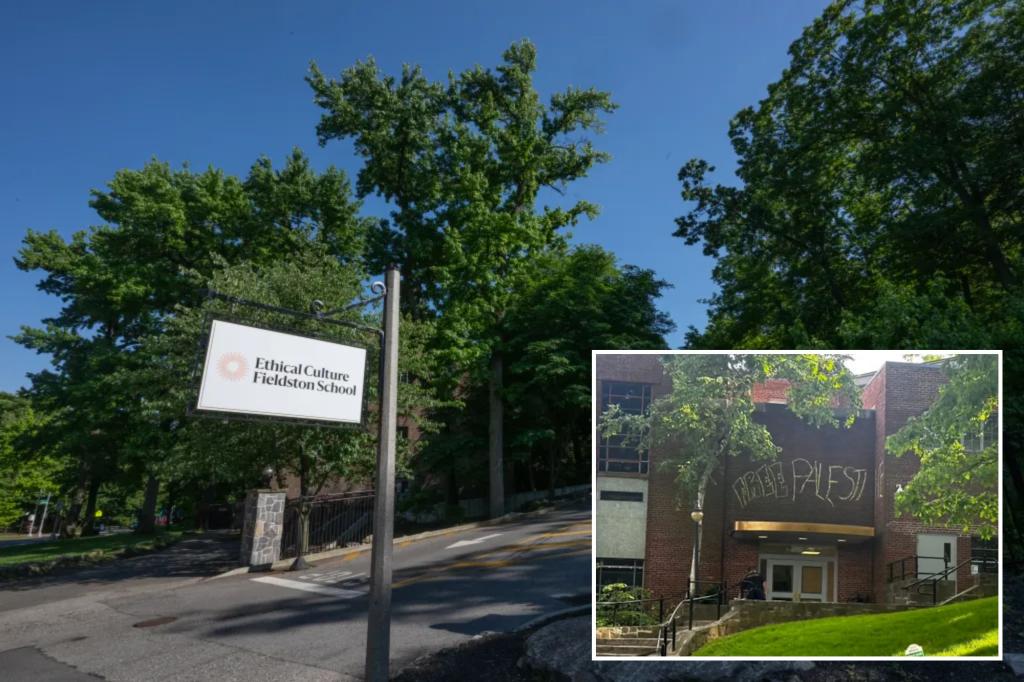The Ethical Culture Fieldston School in New York City, known for its cultural diversity and tolerance, was vandalized with anti-Israel graffiti, marking the fifth incident involving race or religion at the Bronx campus in the last decade. Two seniors wearing keffiyehs wrote “Free Palestine” in chalk on the school’s front entrance, which was apparently livestreamed. This incident prompted a meeting with parents including many from the Jewish affinity group, who expressed concerns about how acts of antisemitism are not taken as seriously as other issues like racism or homophobia.
The graffiti has been removed, and an investigation has been launched following the incident. However, one parent believes this incident is indicative of a deeper systemic issue at the school. The parent, whose children are former students at the school, mentioned that radical views held by some teachers have influenced students, leading to a problematic culture at the elite school. The family ultimately decided to withdraw their children from the school, describing it as the “best decision of our lives.”
Founded in 1878, Fieldston School is part of the Ivy Preparatory School League in New York City. The school has been praised for its commitment to diversity, equity, and inclusion but has faced challenges related to antisemitism. The parent mentioned that the school’s DEI efforts have exacerbated antisemitism, and the graffiti incident is just one example of this issue. The school has a history of incidents involving race or religion, including divisive affinity groups and controversial guest speakers.
The school has faced previous controversies, such as students using racist, homophobic, and misogynistic language in a video back in 2019, leading to protests from students who felt the school’s disciplinary actions were inadequate. In November of the same year, a guest speaker compared Israel’s treatment of Palestinians to the Holocaust, garnering strong criticism. The school also fired a Jewish teacher in January 2020 for opposing speakers invited to discuss antisemitism, citing their race and Zionism as reasons for concern.
Despite efforts to address these incidents, such as bringing in conflict negotiators, the school’s approach has been criticized as being light on content and heavy on feelings. The source mentioned that there is a double standard in how the school addresses acts of violence or discrimination, with certain issues being downplayed while others are highlighted. Although the school has emphasized its commitment to diversity, equity, inclusion, justice, and belonging, it continues to face challenges related to antisemitism and discrimination on campus. Requests for comments from school administrators were not returned.


